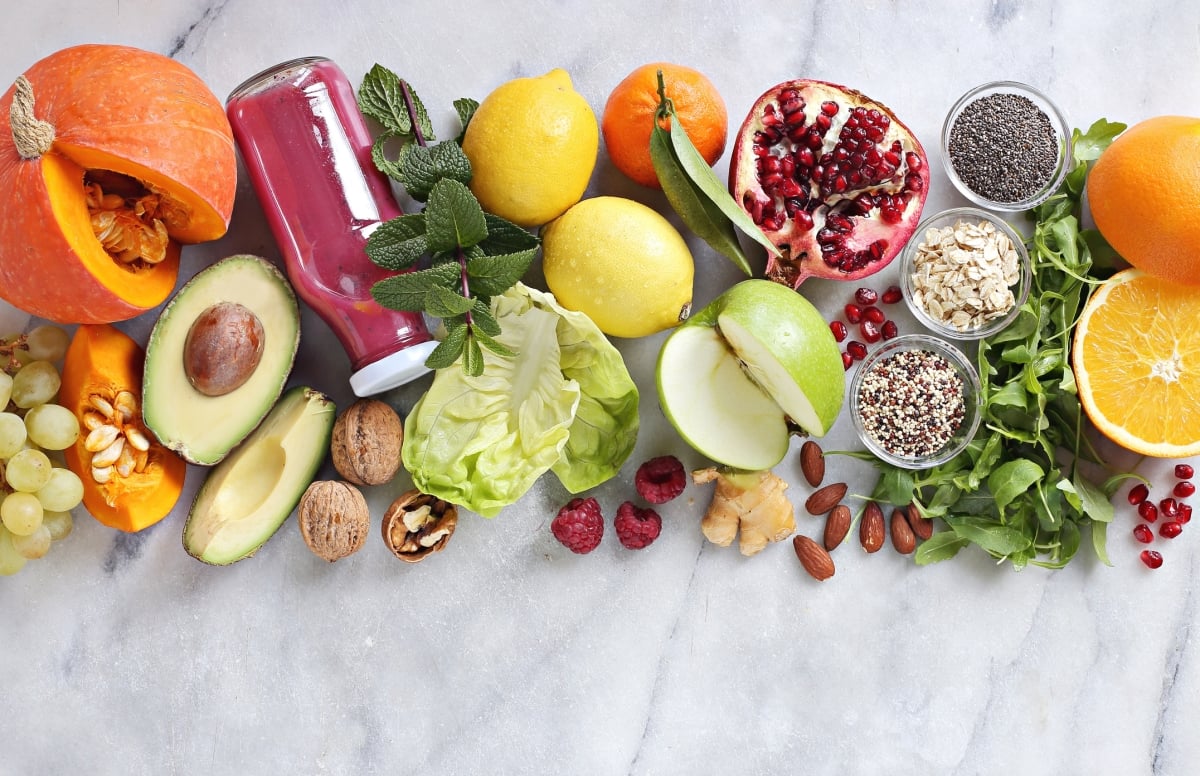By Joel Kahn, MD
There are about 60,000 miles of blood vessels coursing through your body, although most guys are mainly concerned with about six inches of arteries, vessels that carry blood away from the heart. Inside every artery is an inner lining that’s only one cell-layer thick called the endothelium. The discovery and appreciation of the endothelium for health was so significant that three researchers were awarded the Nobel Prize in Medicine in 1998 for this finding. They figured out that when the endothelium is healthy, it produces a gas called nitric oxide (NO). It sounds similar to nitrous oxide, also known as laughing gas. But they are two distinct things.
Arteries can make a lot of NO or just a little. When a lot of NO is produced, arteries relax, allowing more blood flow and more normal blood pressure. This decreases the formation of arterial plaque and the blood clots that cause heart attack and stroke. It turns out that to have a healthy sexual response, lots of NO needs to be present. With adequate NO, lots of blood can flow and cause the necessary tissues to swell.
How Nitric Oxide Production Affects Your Endothelium
How many times have you heard that eating fruits and vegetables can improve your health? But how many people actually eat even the recommended minimum amount? If you do, you are rare, indeed. And if in addition to eating well, you include the healthy habits of not smoking, exercising regularly, and maintaining a proper weight, you’re among the 3% of Americans who go four for four. These are the very lifestyle factors that affect the endothelium and its production of NO.
Do you eat donuts more than grapes? You’ll make less NO. Do you like to smoke? You’ll make less NO. Are you sedentary? You’ll make less NO. Are you overweight or obese? You’ll make less NO. Lifestyle decisions can lead to diabetes, elevated cholesterol, hypertension, and obesity. And all of these conditions can produce erectile and endothelial dysfunction through the production of less NO.
The standard American diet is high in processed foods packed with chemicals, fat, sugar, and salt. And it’s often combined with a sedentary lifestyle, poorly managed stress, intake of environmental toxins, such as bisphenol A (BPA) found in plastic bottles, and poor sleep. These are all factors that reduce NO and produce erectile dysfunction (ED). Diets emphasizing plant-powered, rainbow-colored foods that are naturally low in fat and rich in vitamins, minerals, and phytonutrients, promote arterial health and erectile success. These are the NO boosters. Next time you see the produce managers at the grocery store, give them the respect they deserve as unwitting sexual counselors.
Not Hard? It May be Heart Disease
Erectile dysfunction is a powerful predictor of future coronary artery disease events. For example, if you live in Olmsted County, Minnesota, and are a man between the ages of 40-49 without known heart disease, but with ED, you have up to a fiftyfold higher incidence of eventually having new heart events compared to men the same age without ED. Rarely in medicine is there ever a risk factor this powerful. (By comparison, smoking may raise your risk of similar events threefold. Please do not smoke. Doctor’s orders!)
How big a problem is a penis that won’t stay hard? There are an estimated 30 million men in the United States alone with erectile dysfunction. And the problem is growing while the male organ is not. When sexual function falters, not only may romance suffer but overall health, and specifically, heart health can suffer too. As you now know, research shows that ED can be an early warning sign of heart disease.
Viagra was recently studied in Sweden. And the results were presented at a national cardiology meeting in 2017. In 43,000 men who had suffered a first heart attack, the use of any erectile dysfunction drugs was observed to reduce the risk of dying of any cause by 33% during the course of the three-year study. That’s a big advantage for the survivor of a heart attack. It’s also gratifying to know the safety of sex in general and these drugs, in particular. Surely further research is needed, but for now, it appears that more blood to the wood is good for the heart and soul.
But you don’t need drugs to create healthy blood flow. Let’s turn to some research on the relationship between dietary choices and successful sex — vegan style.
The Sexiest Foods Are Plant-Based

A Study on Plant-Based Foods and Sexual Function
Researchers from Harvard Medical School performed the first observational study of dietary habits and sexual function over ten years. The authors of the study estimated that over 300 million men worldwide will soon suffer from erectile dysfunction. And they concluded that vascular disease, or sick blood vessels, was a common cause linking ED to heart disease and stroke. They looked at 25,096 men from the Health Professionals Follow-Up Study, which was started by the Harvard School of Public Health in 1986. The study concentrated on how many servings these men were eating of plant-based foods, particularly those plant foods rich in flavonoid compounds known to be favorable to artery health. Although they’re not labeled as such, many of the foods you’re probably already buying or growing are rich in these sexy compounds. Some of the foods highest in flavonoids include:
- Apples
- Blueberries
- Citrus fruits (such as lemons and limes)
- Strawberries
Flavonoids
Every four years, during the study, participants provided details of their diets and rated their erectile function. During the ten years of follow-up on these health professionals, a sobering 36% of the men reported erectile dysfunction. It appears that being a doctor isn’t a guarantee of being immune to impotence. It also makes you wonder about taking advice regarding nutrition from many health professionals who have little education in the field. They can suffer the same consequences of the standard American diet as the rest of the population.
After additional factors known to be harmful to arteries supplying the sex organs (such as diabetes, high cholesterol, and smoking) were confirmed, dietary factors, including specific plant foods, were found to be associated with less ED, better erections, and better sex. The higher the intake of foods rich in certain flavonoid compounds (anthocyanins, flavanones, and flavones), the lower the risk of ED. The Harvard data showed that eating apples, blueberries, citrus fruits, pears, and strawberries instead of chips, cookies, and fries can help to maintain normal sexual responsiveness.
If you remember only one lesson about eating for sexual health, make it this one: the higher the intake of fruit, the lower the risk of erectile dysfunction. To have a banana of an erection, eat a banana. Indeed, men eating the most fruit had a 14% reduction in their risk of ED over the study. It appears that if you add fruit today, you can keep the blue pill away. Therefore, I recommend that you make a firm commitment to eating more plant-based foods — particularly fruit.
L-arginine and L-citrulline
In a series of studies on 440 patients in Spain, 42% reported ED. Factors related to ED, including diet and lifestyle, were also studied. Patients with ED were frequently sedentary people who smoked and consumed higher amounts of alcohol. Eating nuts and vegetables lowered the risk of ED by about half. Obesity, heart disease, and steady alcohol consumption were shown to be directly related to ED. Overall, erectile dysfunction was a very common disorder in these patients with risk factors for heart disease. As a result, eating vegetables and nuts may be protective, as they are known to heal endothelium and drive NO production to higher levels.
The reason plant-based foods can quickly boost sexual function takes us back to the endothelium and NO production. The amino acids L-arginine and L-citrulline cycle back and forth and create NO in endothelial cells. This system is particularly active before the age of forty. A smart plan for maintaining peak sexual performance is to eat foods high in L-arginine that lead to NO production. If you occasionally eat almonds, Brazil nuts, peanuts, pine nuts, pistachios, and walnuts, you’ll be getting adequate L-arginine in your diet. If you’re watching your weight (and who isn’t!), be sure to limit nut consumption to about one small handful per day, as nuts are calorie-dense. Whole grains, such as oats and wheat germ, also have significant amounts of L-arginine and should be a part of any healthy diet.
The amino acid L-citrulline, can also keep arteries responsive in order to support romance and passion. Watermelon (particularly its white rind) has the highest concentration of L-citrulline in nature, and yellow watermelon is higher than red varieties. There’s L-citrulline in onions and garlic too; however, watermelon might be a better choice before going on a date!
Nitrates
In addition to eating foods rich in L-arginine and L-citrulline to provide the building blocks for NO production, you can generate NO another way. There are chemicals called dietary nitrates, found in many foods, that can be converted by saliva to nitrites, absorbed, and then converted to NO. You can actually chew cruciferous vegetables and end up with the same reaction you might get from a prescription medication: more NO! Arugula, kale, and cabbage are among the nitrate-rich cruciferous vegetables. Other high-nitrate greens include Swiss chard, basil, cilantro and beet greens. Beets can also supply dietary nitrates when eaten whole or juiced. If you include apples, grapes, green tea, and pomegranates in your diet, you’ll end up with a dynamite erotic potion.
Note: Because this reaction requires the healthy mouth bacteria found in the grooves of our tongues, using antiseptic mouthwashes can interrupt the process. These products can kill helpful bacteria. And they can prevent the healthy conversion of dietary nitrates to nitrites leading to NO production and successful sex.
What About Women?

While I’m certain that the choices that are good for men are good for women too, there’s not much data on female sexual response and heart disease. So please forgive the male focus in this discussion. However, women also need blood flow for romance. And the same systems work in the female body, although they’re studied less often in research protocols.
There are limited studies using drugs like Viagra in women with diabetes and sexual dysfunction, and benefits were reported. The mechanism used by Viagra to lead to sexual improvement has the same end result as NO pathways. Therefore, it’s reasonable to expect that women eating foods rich in L-arginine, L-citrulline, and dietary nitrates will experience a boost in their sexual responsiveness too.
Recent data indicates that identifying a man with diabetes who is unable to have a satisfactory erection can predict the presence of diseased arteries and future heart events several years before a heart attack or heart death. The predictive power of erectile dysfunction on heart events is even more powerful than smoking, blood pressure, or even a family history of early heart attacks.
Men often like to brag about their sexual prowess, whether that bragging takes place in the gym or the bedroom. This behavior also frequently corresponds with eating steaks, smoking cigars, and watching football for hours while sitting on the couch. And all of these activities likely to lead to less NO and more ED. In my opinion, the sexiest man (or woman) is the one who loves animals but doesn’t eat them, who takes care of his or her health by getting exercise and not smoking, who takes care of the environment by making wise, plant-based food choices, and enjoys the sexual benefits of plant-powered genitals.
Adapted from Vegan Sex: Dump Your Meds and Jump in Bed, by Joel Kahn, MD, Ellen Jaffe Jones, and Beverly Lynn Bennett. Order a copy here.
90% of heart disease
can be prevented,
and even reversed.
Discover the research-backed and all-natural ways you can stop heart disease from stopping you
in the FREE

WATCH HERE
Tell us in the comments below:
- What do you think?
- Have you or a partner of yours ever seen a connection between sexual health and food?
Featured Image: iStock.com/Wavebreakmedia




